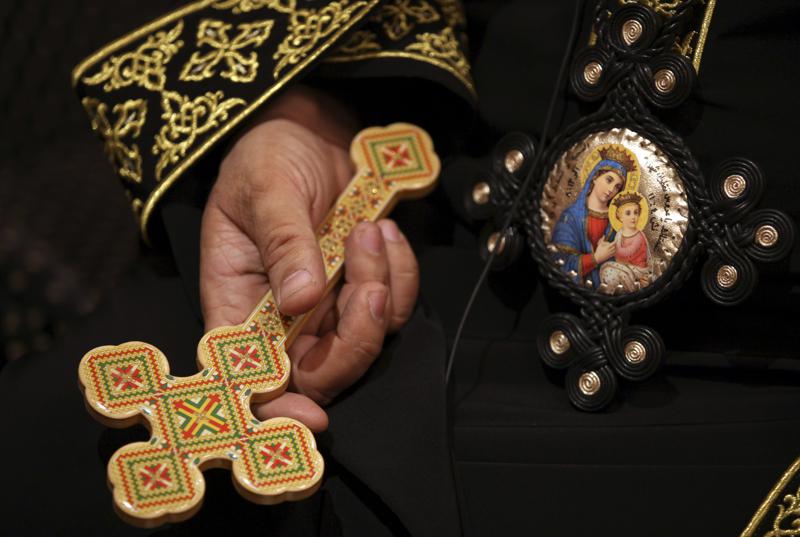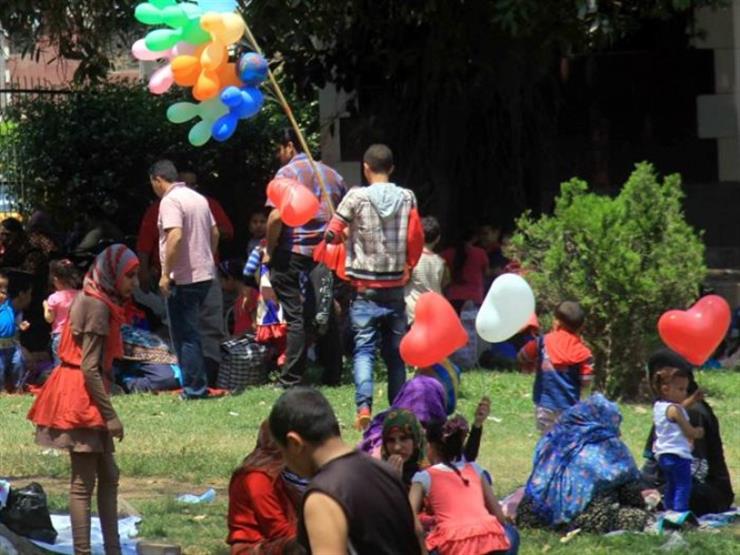It is 12:00 PM and people are pouring into Shaheen el-Fasakhany’s little shop on 183 Tahrir St., Bab el-Louq. Vendors are running around trying to accommodate screaming feseekh customers doing their last minute shopping before Easter. The odor is almost unbearable and, actually, I can still smell the feseekh on my shirt as I write this article.
Feseekh is a form of dried, salted fish that is traditionally eaten in Egypt during Sham el-Nessim, a national holiday marking the start of spring. The owner of Shaheen for Salted Fish & Caviar, Hajj Mohamed Shaheen, tells us that the company was established in 1955, and opened another branch in Sayyeda Zeinab in 1990.
Sabry has been working in the shop for 10 years. “We’re used to pressure during this time of the year,” he says, quickly wrapping three salted fish in a piece of paper for a nagging customer. “Our feseekh is made with grey mullet fish from el-Borolos lake, and kept in salt for forty-five days.”
He goes on to describe other varieties of salted fish which they carry. He explains that melouha, another salted fish specialty, is made from Kalb el-Bahr fish which usually comes from Aswan, while sardines are brought from Rashid, a coastal town in the Nile Delta. Herring, on the other hand, is usually imported from Holland.
Sabry explains that a kilo of Herring costs around LE30. To avoid all the hassle of cleaning and cutting the fish, customers can buy Herring fillets and Batarekh (Egyptian Caviar) in jars or vacuum sealed. But of course, that option is more expensive, reaching LE50-60 per kilo.
“The source of all our fish is known and we guarantee good quality, unlike most super markets where the source of the fish is unknown," adds Sabry in an overly dramatic, fishy tone.
A kilo of feseekh costs around LE70 and customers can request the degree of saltiness which, Sabry explains, comes in all tastes and varieties.
But business this year has been slower than usual. "People have just celebrated Moulid el-Nabi and Mother’s Day and so perhaps they cannot finance another celebration,” says Samir, another vendor at Shaheen’s.
And it seems some have taken feseekh out of their yearly Sham el-Nessim festivities all together. “I haven’t had feseekh in more than 20 years,” says Farida, a mother and a housewife. "Many people stopped eating it in the 1990’s after a number of high-profile food poisoning cases."
When asked if he still ate feseekh for Sham el-Nessim, Ahmed Senna, who grew up in the 1990’s, explained that in his house it was never even allowed. For others, feseekh is a must during this time of year. “I am a loyal customer of Shaheen’s. We buy Feseekh and Herring from here every year,” says Laila as she stands in line in front of the busy shop.
In the midst of the feseekh spree, Seif, 32, says: “I tried the salted fish twice in my life; it tastes nice but the smell is obnoxious.”
Sham el-Nessim is a festive time for all Egyptians as families go out to public gardens to enjoy their salty delicacies. But, as Shaheen himself will advise, buy your feseekh from a trusted source and remember to drink lots of water.
Bon Appétit!




